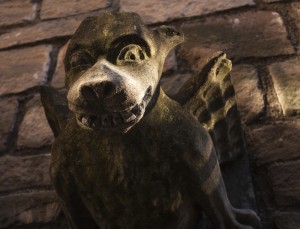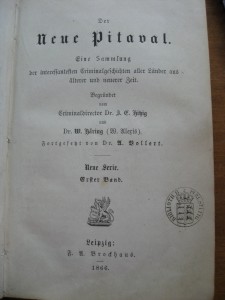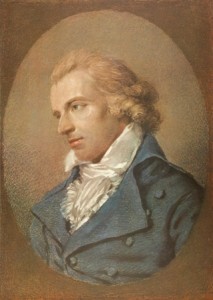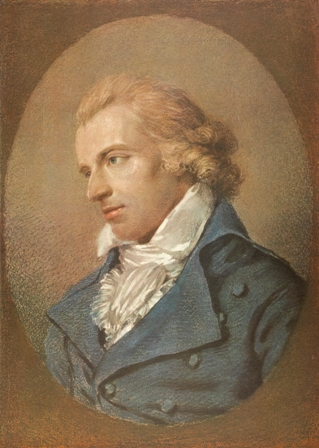
Who is the most famous true crime author in the world? Truman Capote, perhaps? Or Ann Rule?
Think again.
If you travel back to the French and German origins of the true crime genre, you’ll find Germany’s greatest poet. He not only wrote his own true crime story, he edited a true crime collection and gave the new genre his blessings. And you know his name. World-renowned for writing the Ode to Joy and William Tell, Friedrich Schiller (1759-1805) launched the true crime genre in Germany.
But it was France that inspired him.

Most scholars credit Francois Gayot de Pitaval with creating the contemporary true crime genre. He published a collection of criminal cases between 1734 and 1743. Although he wasn’t the first author to write about crime, he offered something new. Pitaval probed the psychological depths of the criminal mind and retold the stories with narrative flair. This combination captivated the public. Pitaval’s collection became a bestseller of the 18th century, sparking translations and further editions.

In Germany, Schiller was fascinated. He inaugurated Pitaval’s collection in Germany by editing the debut German edition. In his introduction, Schiller recommended studying criminal cases. Crime, he wrote, is a thought-provoking, fertile field for fiction. His own true crime story also prefigured the modern true crime story. We’ll look at that story in a future blog.
What is your favorite true crime story and why do you like it?
Mine is And the Sea Will Tell by Vincent Bugliosi and Bruce B. Henderson. I like the exotic location (South Sea atoll) and the fascinating way the authors cast doubt on desert island arithmatics. Four (the number of people on the island) minus two (the number of people who disappeared) doesn’t necessarily equal two (the number of murderers).
Some literature on the French and German origins of the true crime genre:
Albert Borowitz, Blood & Ink: An International Guide to Fact-based Crime Literature (Kent, Ohio: Kent State University Press, 2002)
Mary Lindemann, Narratives of Dismembering Women in Northern Germany, in Women and Death 1 (Helen Fronius, Anna Linton, eds.; Rochester, NY: Camden House 2008) pp. 76-92.
Martin Rosenstock, The Anti-Detective Novel in German, English, and Swiss Literature (dissertation, Univ. of California, Santa Barbara, 2007).
(c) 2014 Ann Marie Ackermann




Adding “And the Sea Will Tell” to my to-read list!
I think you’ll like it!
Ann rule Small Sacrifices . I saw Ann rule on Oprah. Diane ,the mother who sacrificed her children , spoke from prison. I got the book and couldn’t put it down. Later it was a mini series starring Farrah Faucett.
I have heard so much about that book,but haven’t read it yet…. Thanks, Margaret, for the tip; I think I’ll get it.
The Monster of Florence by Douglas Preston is definitely my favorite true crime book. I loved how the author was drawn into the case to the point of becoming a suspect himself. The fact that it is still an unsolved case spanning 30 years was quite intriguing. I can’t recommend this book enough.
Thanks for the tip, John. I’ve never heard of the book, but your description touches on two features of true crime that I love: Europe and cold cases! I’ll add it to my reading list.
John, I finished The Monster of Florence and really liked it, thanks for putting me onto this book! It has a great sense of place and covers a shocking crime that made ripples in the murder mystery literature. Insights into the Amanda Knox case (same prosecutor) is an added benefit. This book is my second favorite true crime book!
I love your posts about the historical origins of true crime. I’m adding a Schiller biography to my winter reading list! Meanwhile, many people cite And the Sea Will Tell as their favorite true crime book. I’ve got to put that on the list too. Love your website!
Thanks, Laura! You have a great website, too! And I hope you enjoy both Schiller and Vincent Bugliosi.
For anyone who doesn’t know Laura, she’s an American lawyer with a historical true crime website called CLEWS. She focuses on Americans crimes. http://www.laurajames.typepad.com/
[…] French and German Origins of the True Crime Genre. No, Truman Capote did not invent the true crime genre. A Frenchman did in the 18th century and caught Friedrich Schiller’s attention. Schiller promoted the new genre and added a few stories of his own. Gérard Araud, the French ambassador to the United States, liked this post. He tweeted me to say he hadn’t known this history and thanked me for posting it. […]
[…] So if France is not the birthplace of the lineup itself, it still might be the origin of the police lineup with respect to its philosophical underpinnings. And that’s fitting, because France also gave birth to the true crime genre. […]
I had no idea that Schiller was fascinated with true crime stories and thinking about what went on in the criminal mind. The one thing you always manage to do is get me interested in reading more books, and now I’ll be wanting to read the true crime story that interests you the most!
Not only was he fascinated with true crime, he thought true crime offered a fertile ground for literary inspiration. So many people today consider true crime a “lesser” genre but don’t realize one of the greatest authors of all time was enthused and inspired by it.